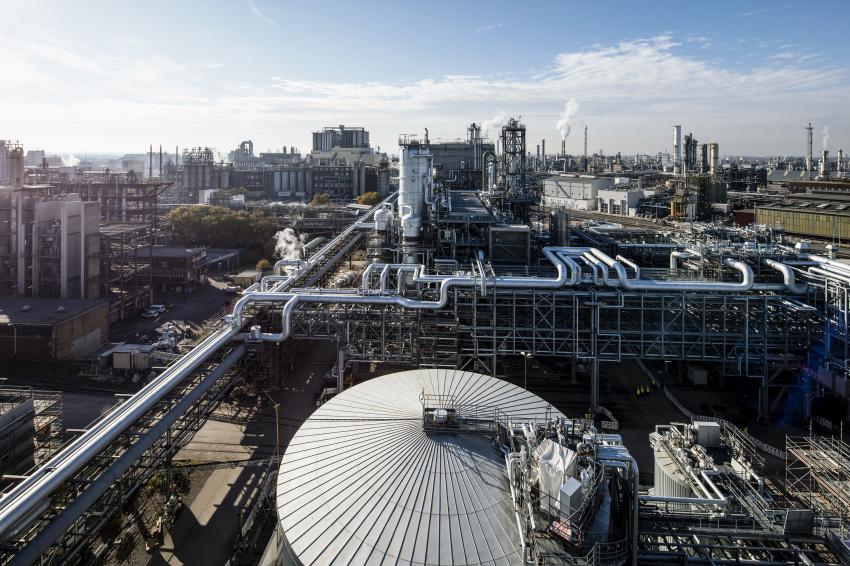BASF Says no Fault Obvious in Ludwigshafen Blast
12.04.2017 -
BASF sees itself vindicated by the results of one of preliminary investigations into a deadly accident that killed four people at its Ludwigshafen headquarters last autumn and caused the temporary shutdown of numerous production facilities.
At a meeting with residents of the area surrounding its headquarters base, the group said an official analysis of the status of the affected facilities before the accident on Oct. 17 had turned up no safety deficits, and subsequent probes to date showed the chemical group’s safety practices and those of contractors working at the site to be adequate.
What’s more, BASF said, soil probes taken from agricultural land surrounding the site of the explosion in the site’s North Harbor on the River Rhine immediately after the accident showed no chemical residues exceeding permissible levels, while vegetables grown on the land presented no health hazard. Samples taken from the pipe trench did, however, show contamination with the chemicals released in the explosion.
Although the investigation up to now has not pointed up serious safety deficits, site manager, Uwe Liebelt, said it has given rise to suggestions for improvement that site management will incorporate into its concept for rebuilding the damaged pipe trench.
In the first place, Liebelt said steps toward better identification and labeling of pipes could be taken to rule out the danger of a mix-up in future. One of the suspected causes of the blast that occurred during repair work to a pipe bridge was that two pipe sections may have been incorrectly connected.
An initial report two weeks after the blast said a pipeline containing a butylene mixture apparently had been cut, and that a chemical leak may have been ignited by sparks from an angle grinder used in the repairs. This work was being carried out by outside contractors, including a firm that has worked for BASF for 25 years.
The German technical authority conducting the official investigation said additional safety precautions could also include the use of low-sparking welding equipment to prevent ignition of an explosive chemical mix. Another point mentioned by Liebelt was that insulating pipes with fire-retardant materials could potentially reduce the risk of explosion in above-ground pipe systems. In the near future, BASF will present to authorities its concept for rebuilding the pipe trench where the explosion occurred.
The accident at Ludwigshafen, one of the site’s most serious, led to the initial shutdown of 20 production facilities, including two crackers and parts of the downstream ethylene chain. In the immediate aftermath, about a quarter of the 200 plants were producing below capacity.





